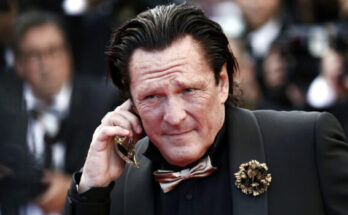
The world of professional basketball has been rocked to its core following an unprecedented decision by the United States Basketball Federation: Brittney Griner, one of the WNBA’s brightest stars and a symbol of resilience, has been banned for life after being found guilty of making racist and insulting remarks towards rising sensation Caitlin Clark during a nationally televised game.
The ruling, announced late Friday evening, sent shockwaves through the sports community, igniting a firestorm of debate, outrage, and soul-searching—both within the sport and far beyond.
A Night That Changed Everything
It was supposed to be a marquee matchup: the veteran dominance and physical prowess of Brittney Griner leading the Phoenix Mercury against the youthful brilliance and sharp shooting of Caitlin Clark, the rookie phenom for the Indiana Fever. Fans packed the arena, and millions tuned in to witness what was billed as a “clash of generations.”
But by the final buzzer, the conversation had shifted from basketball to something far more troubling.
According to multiple sources, the incident occurred late in the third quarter. After a hard foul and a verbal exchange between Griner and Clark, courtside microphones allegedly picked up Griner uttering racially insensitive and derogatory remarks directed at Clark. The audio, which quickly went viral on social media, sparked immediate outrage.
Within hours, the Basketball Federation launched a full investigation. By the next evening, the verdict was in: Brittney Griner was banned from all basketball activities for life.
The Fallout: Shock, Anger, and Sorrow
The news hit like a thunderbolt—not just for Griner’s fans, but for the entire basketball world. Griner, a two-time Olympic gold medalist, WNBA champion, and advocate for social justice, had long been seen as an icon both on and off the court. For many, the allegations were almost unthinkable.
But the evidence, according to the Federation, was “irrefutable.” In a somber press conference, Federation President Maria Sanchez declared, “There is no place in our sport—or in our society—for racism or hate speech. The integrity of basketball demands that we hold even our most celebrated athletes accountable.”
Social media exploded with reactions. Hashtags like #JusticeForCaitlin and #GrinerBanned trended worldwide. Some fans expressed disbelief, others sorrow, and many voiced their support for the Federation’s decision.
Caitlin Clark: Grace Under Fire
Caitlin Clark, the 23-year-old guard whose meteoric rise has captivated the nation, was thrust into the center of the storm. In a brief statement, Clark said, “I am saddened by what happened, but I believe in forgiveness and growth. This is bigger than basketball. We must all work together to make our sport—and our world—more inclusive and respectful.”
Her poise and maturity in the face of adversity drew widespread praise, with many commentators noting her leadership both on and off the court.
Brittney Griner’s Response
Griner, who had previously been lauded for her advocacy on social issues, released a statement through her agent. “I deeply regret my words and actions. They do not reflect who I am or what I stand for. I accept the Federation’s decision and will spend the rest of my life working to make amends and promote understanding.”
But for many, the apology rang hollow. “It’s heartbreaking,” said former teammate Diana Taurasi. “Brittney has done so much good, but this cannot be excused. We have to confront these issues head-on.”
A Sport at a Crossroads
The Griner scandal has forced basketball—and sports in general—to confront uncomfortable questions about racism, accountability, and redemption.
For years, the WNBA and NBA have prided themselves on their progressive values and commitment to social justice. But as this incident shows, no league is immune to the challenges of prejudice and discrimination.
“This is a wake-up call,” said ESPN analyst Stephen A. Smith. “We can’t just talk about equality and respect when it’s convenient. We have to live those values every day, no matter who is involved.”
Fans React: “A Sad Day for Basketball”
Outside the Phoenix Mercury’s home arena, fans gathered in disbelief. Some wore Griner jerseys, others held signs supporting Clark. “I never thought I’d see the day,” said longtime fan Lisa Rodriguez. “Brittney was my hero. But we can’t ignore what happened. We have to do better.”
On social media, the debate raged on. Some questioned whether the punishment was too harsh, while others argued it was necessary to set an example.
What’s Next for Griner—and the Game?
For Brittney Griner, the path forward is uncertain. At 34, her playing days are almost certainly over. But her legacy—once defined by triumph and perseverance—is now clouded by controversy.
For Caitlin Clark, the ordeal could have derailed her rookie season. Instead, she has emerged as a symbol of resilience and hope, vowing to use her platform to promote unity and understanding.
And for basketball, the challenge is clear: to learn, to heal, and to ensure that the game lives up to its highest ideals.
A Turning Point
As the dust settles, one thing is certain: the Griner-Clark incident will be remembered as a turning point in the history of American sports. It is a reminder that greatness on the court means nothing without integrity off it—and that every athlete, no matter how celebrated, is responsible for upholding the values that make the game truly great.
In the words of Caitlin Clark: “We all have a role to play in making basketball a game for everyone. Let’s rise to the challenge—together.”



